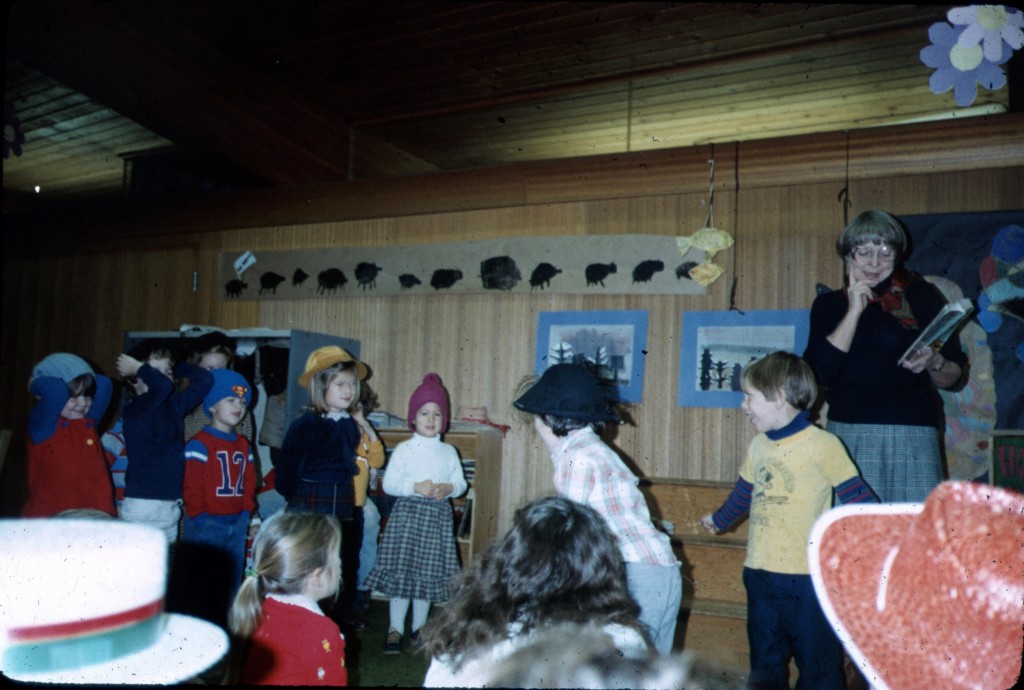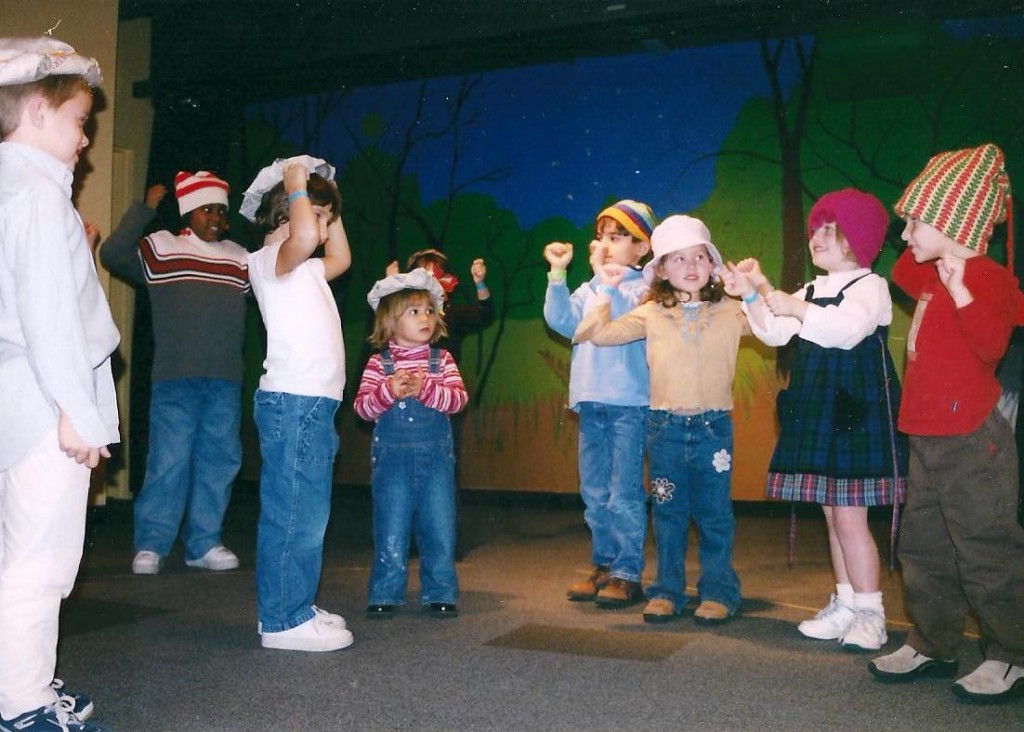I took a trip down memory lane this week as a I sifted through old family photos and slides, scanned in recent years to prevent their permanent decay.
I was delighted to find this photo, circa 1982
I hope you recognize the book in the teacher’s hand. It’s Caps for Sale, my favorite book for PictureBook Plays! I’m not in this photo, but some of my contemporaries are. The teacher is Ms. Shirley Webber. A magnificent teacher who is still a good family friend.
But wait, it gets better.
Here’s another photo I have lying around, circa 2002
In the first story, the cap sellers have just woken up to discover their hats are being worn by monkeys. In the second photo, the monkeys are imitating the cap sellers in their frustration, “tsk, tsk, tsk!”
The similarities are uncanny.
Both images illustrate something very important about process-oriented theatre: Children stand where they stand, and face where they face. It’s not about “always face the audience” and “stand where your told.” It’s about telling the story with your bodies and faces.
In the first image, you can see the children playing the cap sellers (on the right hand side) acting surprised at their discovery. The children on the left are waiting for their turn, but still enjoying the cap sellers. You can see their interested smiles. In the second image the monkeys (on the right hand side) are tsk-ing. You can see one child enjoying herself so much she probably is about to burst out laughing. The girl next to her is ‘checking in,’ an important developmental phase since young children transition back and forth between “imitative learning styles” and “exploratory learning styles.” [Those are my quotes. I have no idea if those are real terms. But they make a lot of sense.] The littlest cap seller probably spent most of her time watching and imitating (she looks about 2), the one in the middle is already ready to throw her hat to the ground, and the boy on the end is in a joyful spectator moment. He’s half way between audience and actor. Also a good place to be.
Every child is doing something different. Every child is where he or she needs to be to tell the story in that moment. The performance can never be repeated.
Lastly, it’s in a casual setting. There’s no pressure to be heard on a big stage, or ‘get your lines right’ or smile when you curtsy. They’re watching, listening, reacting, imitating, exploring, and–quite simply–telling a story.
If you’ve never read Caps for Sale, now’s the time to head to your local library.


